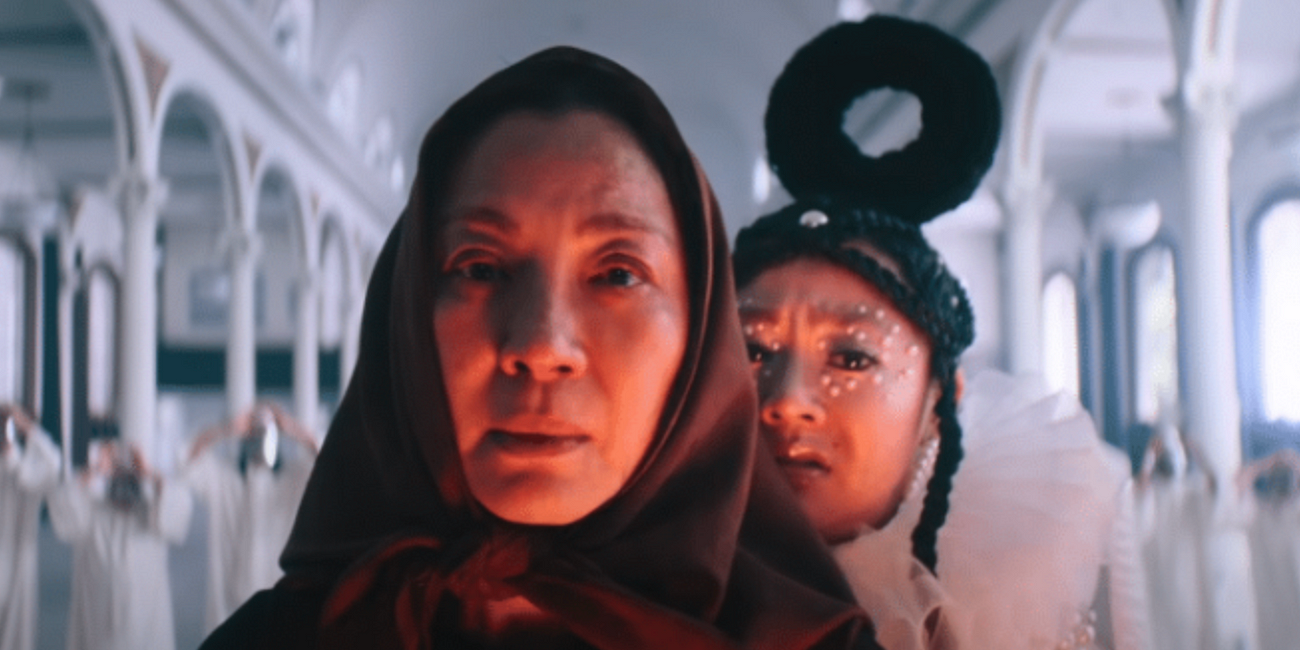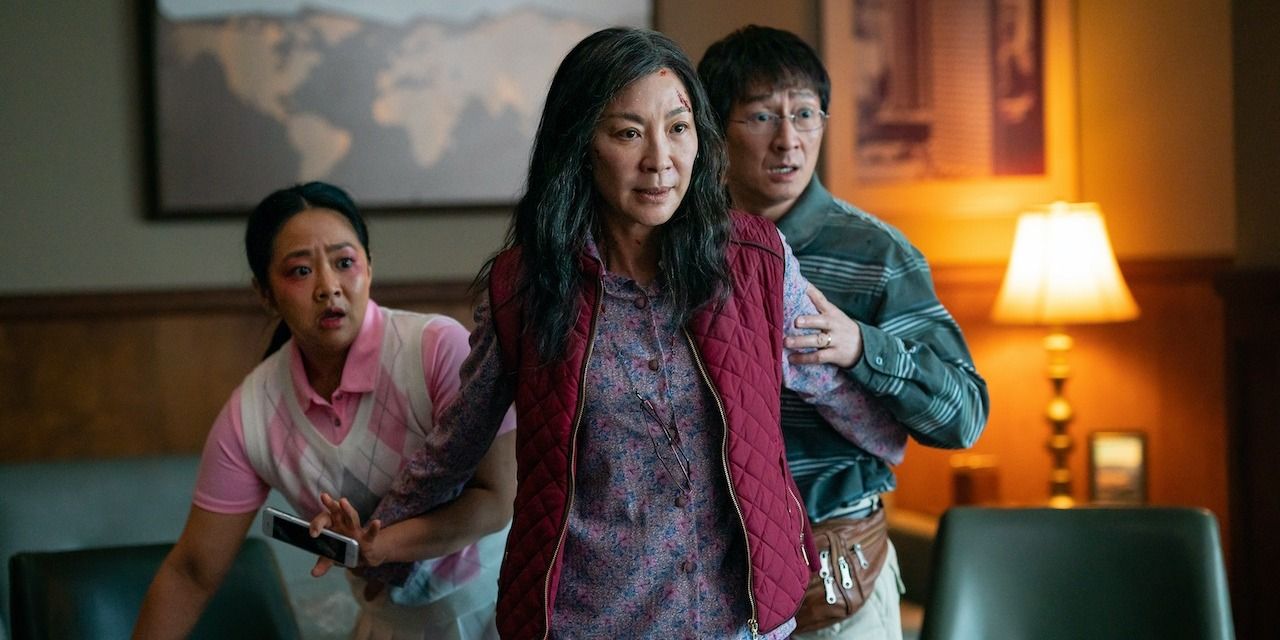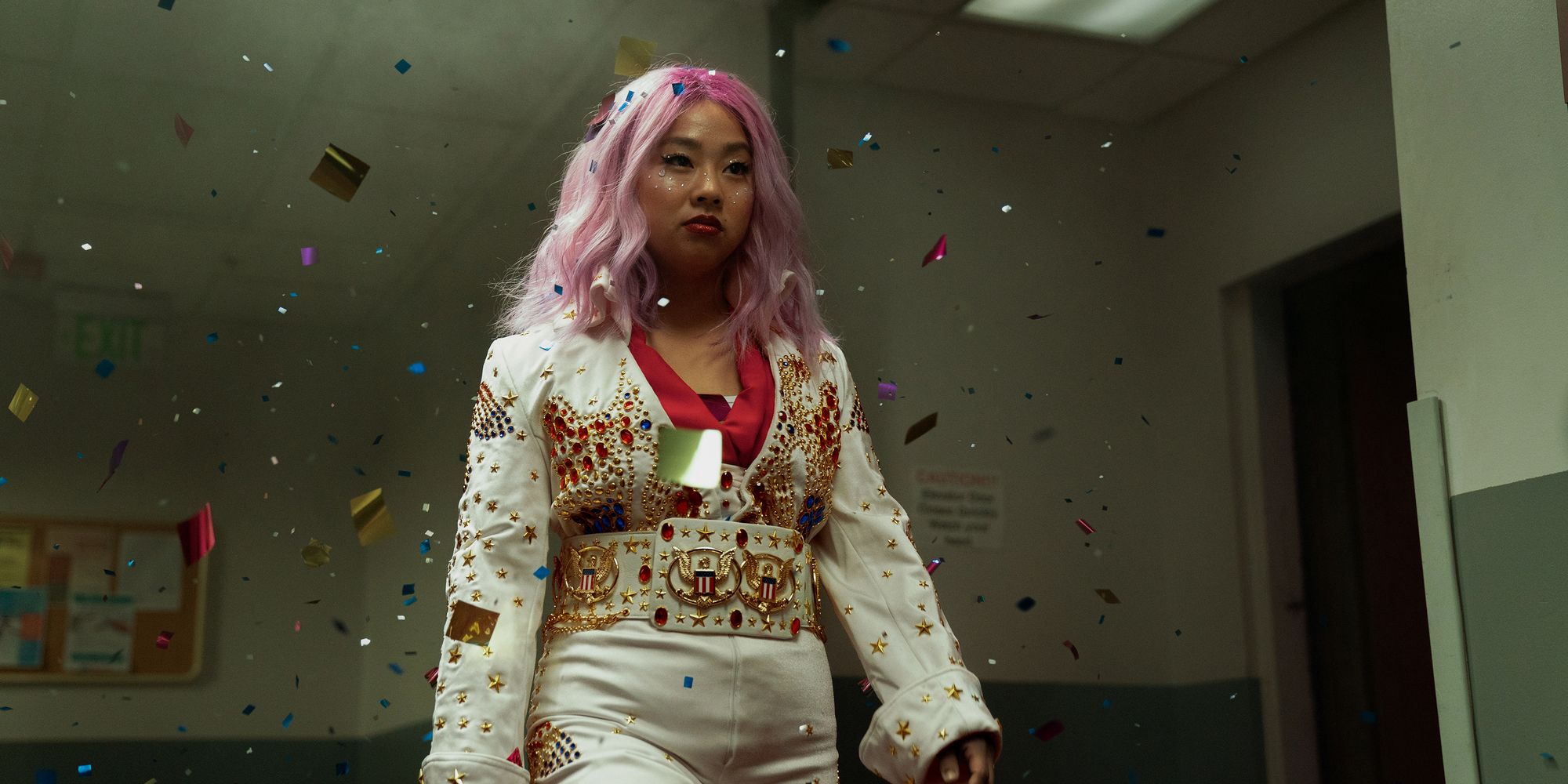The Oscars are over, but before it had even begun, Everything Everywhere All at Once was already the most-awarded film in history. The film has had 165 wins, beating out former record-holder Lord of the Rings: The Return of the King by 64 awards. It completely dominated the awards season, a verifiable achievement considering the directors and movies it was up against: Spielberg’s The Fabelmans, Tár, The Whale, and more heavy-hitters. Despite heavy and formidable competition, Everything Everywhere swept the Oscars, winning seven out of the 11 awards it was nominated for – most prominently, Best Picture, Best Supporting Actor, Best Supporting Actress, Best Actress, and Best Director. And it deserved them all entirely, even if I was disappointed to see other films I’d seen and loved leave empty-handed, unable to hold up against the sheer force of Everything Everywhere’s cultural capital. However, one win gave me pause: Jamie Lee Curtis’ award for Best Supporting Actress.Over awards season, I’ve been surprised by how regularly Stephanie Hsu has been snubbed in favour of Curtis, who had a far smaller role in the movie. Curtis was nominated over Hsu at the BAFTAs and Golden Globes, and the Oscars is not the first time they’ve both been nominated for Supporting Actress only for Curtis to win.  I don’t think Curtis was bad at all in the film, but I don’t think her performance was award-winning – her role was far too small for that. Hsu, in comparison, gave a heartbreaking, eccentric and dynamic performance in her dual role as Joy Wang and Jobu Tupaki, where she was alternately villainous and vulnerable, searching for a connection with her mother. It was an incredible undertaking, one that with Michelle Yeoh’s and Ke Huy Quan’s performances, held the film together and made it the masterpiece it has been celebrated as. Curtis, on the other hand, played a much smaller role as an IRS agent and her various counterparts in the multiverse. Her character had far less depth, development and screen time, just by virtue of the script. It was a relatively minor role, all things considered. So why did Curtis walk away with Best Supporting Actress, while Hsu was barely recognised by major awards shows?
I don’t think Curtis was bad at all in the film, but I don’t think her performance was award-winning – her role was far too small for that. Hsu, in comparison, gave a heartbreaking, eccentric and dynamic performance in her dual role as Joy Wang and Jobu Tupaki, where she was alternately villainous and vulnerable, searching for a connection with her mother. It was an incredible undertaking, one that with Michelle Yeoh’s and Ke Huy Quan’s performances, held the film together and made it the masterpiece it has been celebrated as. Curtis, on the other hand, played a much smaller role as an IRS agent and her various counterparts in the multiverse. Her character had far less depth, development and screen time, just by virtue of the script. It was a relatively minor role, all things considered. So why did Curtis walk away with Best Supporting Actress, while Hsu was barely recognised by major awards shows? I’m not the only one asking this question. Twitter blew up when Curtis won, and some questioned why, in a movie about an Asian family, with an Asian cast, with an Asian director, a white woman with a relatively small role won over her Asian counterpart. Others posited that Curtis got the win because she had been relatively unacknowledged in her industry despite her long career, and this was the Academy’s way of making it up to her. It’s a legacy win, essentially.Everybody knows the Oscars are rigged, not in the sense that people are stuffing ballot boxes, but in the sense that you’re appealing to a very specific audience of voters who share a set of common values and often, similar opinions. I don’t think it’s a stretch to say it’s possible that Stephanie Hsu wasn’t given an award because the Academy thought it was time for Jamie Lee Curtis to be recognised, even if she dꦉidn&r𒈔squo;t necessarily deserve it for the film she was nominated for. There are many examples of this throughout history, most notably Paul Newman for The Color of Money and most recently Will Smith for the King Richard win he overshadowed with The Slap.
I’m not the only one asking this question. Twitter blew up when Curtis won, and some questioned why, in a movie about an Asian family, with an Asian cast, with an Asian director, a white woman with a relatively small role won over her Asian counterpart. Others posited that Curtis got the win because she had been relatively unacknowledged in her industry despite her long career, and this was the Academy’s way of making it up to her. It’s a legacy win, essentially.Everybody knows the Oscars are rigged, not in the sense that people are stuffing ballot boxes, but in the sense that you’re appealing to a very specific audience of voters who share a set of common values and often, similar opinions. I don’t think it’s a stretch to say it’s possible that Stephanie Hsu wasn’t given an award because the Academy thought it was time for Jamie Lee Curtis to be recognised, even if she dꦉidn&r𒈔squo;t necessarily deserve it for the film she was nominated for. There are many examples of this throughout history, most notably Paul Newman for The Color of Money and most recently Will Smith for the King Richard win he overshadowed with The Slap.
In the process, Hsu and Angela Bassett, another popular pick for Best Supp൲orting Actress, were overlooked. It’s pretty common that younger nominees are overlooked for fantastic performances, so𒅌 that left a likely split between Bassett and Curtis based on legacy alone, and unfortunately, more voters knew Curtis’ work than Bassett’s.
It may also have been influenced by the narrative of this particular Oscars – all four of the best acting awards were given to actors staging comebacks, including the three wins Everything Everౠywhere’s cast got and Brendan Fraser, for The Whale. We’re all suckers for a good narrative, but this one put one too many factors against Hsu for her to get the accolades she deserved. Congratula♍tions to Curtis on her win, but I wish it had been for something else.





